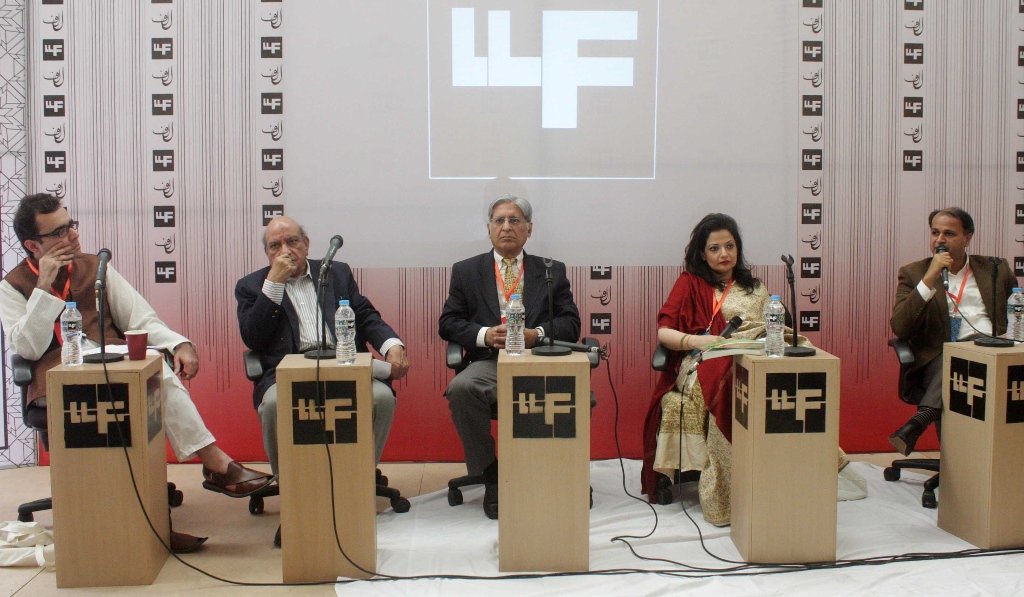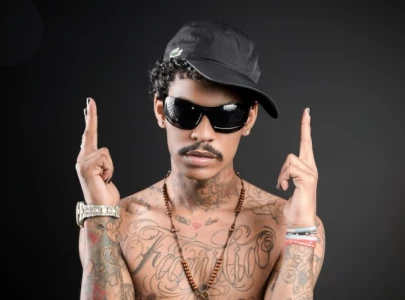
As long as life is infinite faiths will remain indestructible, author Reema Abbasi said at a session on Temples of the Indus on the second day of the Lahore Literary Festival (LLF) on Saturday.
Abbasi said out of the hundreds if not thousands of Hindu temples spread across Lahore in the past only two remained operative. She said a tremendous sense of oppression was widely felt among the infinitesimal Hindu community in the Punjab. Abbasi said many of them had adopted Christian names due to this. “The burden of false identity is the heaviest to bear,” she said. Abbasi contrasted the dismal situation in the Punjab to that in Peshawar. She said a tremendous sense of pluralism and tolerance was prevalent in the city.
Abbasi said the term Hindu was conceived as a geographical reference to describe those who dwelled in the vicinity of the Indus. She said the term had acquired religious connotations later. Abbasi said minorities ought to be called religious communities as the term eroded their political claims.
“We are a composite race,” Senator Aitezaz Ahsan said. He said the nation had been dehistoricised over time especially during the Zia era. “We have been forcefully Arabised in the last three decades,” Ahsan said. He said a plural society existed a mere 30 miles from the city. He said India’s pluralism had made the matrix of society stronger there.
Ahsan said the people of the Indus constituted a distinct part of a great civilisation. He said the temples of the Indus were a metaphor for citizens as there was a little Hindu in every Pakistani. “We have become exclusivists over time…rejected the other…who we cannot push into the Indian Ocean,” Ahsan observed. He said Abbasi’s book, Historic Temples in Pakistan: A call to conscience shed light on the culture, heritage and history of the nation that did not commence in 700AD.
Human Rights Commission of Pakistan (HRCP) Director IA Rehman said Pakistanis had forgotten that they were the most converted people in the world. “We have been Hindu, Jain, Buddhist, Muslim, Sikh and Christians over the course of our history,” he said. Rehman enumerated the challenges confronting the minorities. “Our claims of tolerance are hollow,” he observed.
Anthropologist Zulfiqar Ali Kalhoro spoke about academic works on temples in Pakistan. He said that Sindh was the land of asceticism and mysticism. Kalhoro said syncretism was the cornerstone of Sindhi culture. “Many temples (in Sindh) are associated with both Hinduism and Ismaili Muslim faith,” Kalhoro said. He said most temples in Pakistan were in a state of disrepair. Kalhoro said the condition of those in Sindh was better.
Academic Ali Qasmi, who moderated the session, said most temples in the Punjab and Khyber-Pakhtunkhwa (KP) had become dysfunctional.
He said this was particularly true of the Punjab. Qasmi said the fact that the province had been completely cleansed of its Hindu population in the aftermath of the partition of India could be one reason for this. He said many temples had been demolished across the nation in the wake of the demolition of the Babri Masjid in Ayodhya in 1992.
Published in The Express Tribune, February 22nd, 2015.








1724486955-0/Untitled-design-(12)1724486955-0-270x192.webp)








COMMENTS (1)
Comments are moderated and generally will be posted if they are on-topic and not abusive.
For more information, please see our Comments FAQ